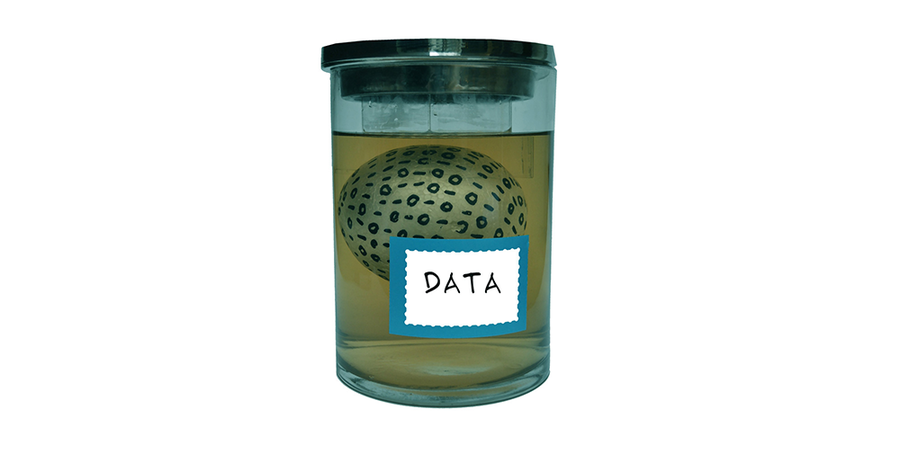DATA ARCHIVES
Data archives
For researchers, the move to open data means that they have to think about what data their research will produce, how these data will be described, and how they can be made available in such a way as to benefit science and society in general. This means that they have to draw up a data management plan and find suitable data depositories. | ERC, 2019

Where is the best place for researchers to publish their research data? This section discusses the considerations and discusses a number of possible data archives.
Recommending a data archive
After the choice for data publication, the choice for a data archive follows. Whereas research projects often have a short lead time, data archives focus on continuity and long-term availability and reusability. Data archives play an undeniable role in facilitating a FAIR data infrastructure.
Which data archive can you recommend to researchers? Sometimes this is already prescribed by a funder, publisher or other external party. But if a researcher has to make the choice for him- or herself, you can, for example, follow the recommendations by OpenAIRE (n.d.) or from ERC (2019), or by viewing possible repositories on re3data according to domain and level of access/licensing.
First, recommend a domain-specific data archive. The advantage of a discipline-specific data archive is that the possibilities are much more focused on the research community in question. The data can be described in a richer way through the use of discipline-specific metadata standards, which also increases the possibility of finding relevant data.
When making your final choice, ask yourself the following questions:
- Is the data archive committed to long-term access?
- Does the data archive store the data safely?
- Does the data archive ensure that the data remain findable through the use of persistent identifiers?
- Does the data archive describe the data in a standard manner, with accepted metadata standards?
If the data archive has a data quality mark such as the CoreTrustSeal, affirmative answers to the above questions can be assumed.
In the Netherlands, you can make use of those at DANS (Data Stations or EASY) (DANS, n.d.a.) or 4TU.ResearchData (n.d.). For large datasets there is also the SURF data repository (SURF. n.d.). Have a look at the infographic for this.
If none of the above is available, recommend a general-purpose data repository:
- Zenodo (n.d., hosted by CERN);
- Dryad (n.d.);
- Figshare (n.d.);
- Open Science Framework (n.d., developed and maintained by the Center for Open Science);
- Harvard Dataverse (hosted by the Institute for Quantitative Social Studies IQSS, Harvard University, n.d.);
- DataverseNL (DANS, n.d.b.).
There are hundreds of repositories worldwide. Some cater to a specific research domain, while others are general-purpose repositories. They may be called something other than a repository, for example, a data centre or an archive. | Whyte, 2015
![]()
In the spotlight
4TU.ResearchData (n.d.) Archiveer jouw onderzoeksdata. https://data.4tu.nl/info/gebruik/publish-cite/
DANS (n.d.a). DANS Data Stations. https://dans.knaw.nl/nl/data-stations/
DANS (n.d.b.). DataVerseNL. https://dans.knaw.nl/nl/over/diensten/DataverseNL/DataverseNL?set_language=nl
DARIAH-EU (2017). Data Deposit Recommendation Service for Humanities Researchers https://ddrs-dev.dariah.eu/ddrs/
Dryad (n.d.) http://www.datadryad.org
ERC (2019). Open Research Data and Data Management Plans. Information for ERC grantees by the ERC Scientific Council. https://erc.europa.eu/sites/default/files/document/file/ERC_info_document-Open_Research_Data_and_Data_Management_Plans.pdf
Figshare (n.d.) https://figshare.com/
Harvard University (n.d.) https://dataverse.harvard.edu/
OpenAIRE (n.d.). How to find a trutstworthy repository for your data. https://www.openaire.eu/find-trustworthy-data-repository
Open Science Framework (n.d.) https://osf.io/
PLOS ONE (n.d.). Data Availability. https://journals.plos.org/plosone/s/data-availability
Re3Data (n.d.) https://www.re3data.org/
SURF (n.d.). SURF Data Repository. https://repository.surfsara.nl/
Whyte, A. (2015). ‘Where to keep research data: DCC checklist for evaluating data repositories’ v.1.1 Edinburgh: Digital Curation Centre. Available online: www.dcc.ac.uk/resources/how-guides
Zenodo (n.d.) https://zenodo.org/
